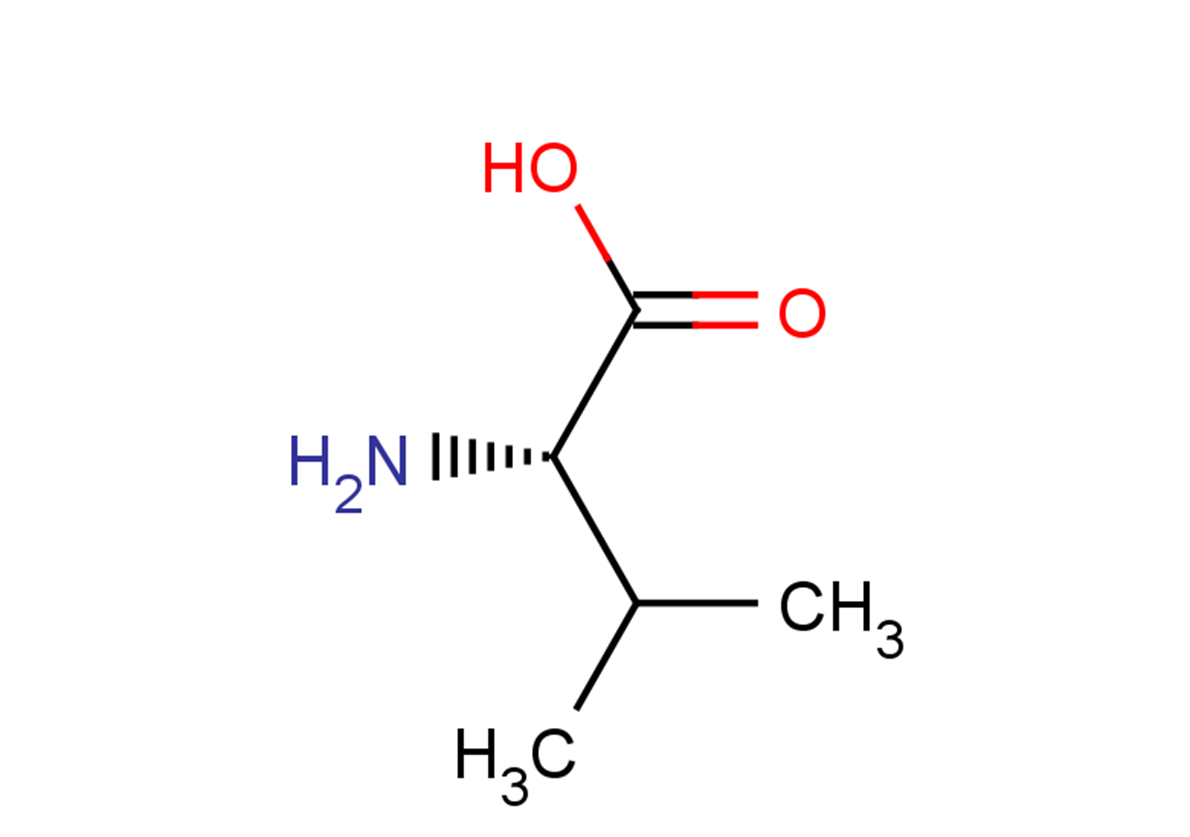
DL-Valine
CAS No. 516-06-3
DL-Valine( 2-Amino-3-methylbutanoic acid | H-DL-Val-OH | Valine, DL- )
Catalog No. M24486 CAS No. 516-06-3
DL-Valine is 2-amino-3-methylbutanoic acid.It is synthesized in plants via several steps starting from pyruvic acid.
Purity : >98% (HPLC)
 COA
COA
 Datasheet
Datasheet
 HNMR
HNMR
 HPLC
HPLC
 MSDS
MSDS
 Handing Instructions
Handing Instructions
| Size | Price / USD | Stock | Quantity |
| 1G | 32 | In Stock |


|
Biological Information
-
Product NameDL-Valine
-
NoteResearch use only, not for human use.
-
Brief DescriptionDL-Valine is 2-amino-3-methylbutanoic acid.It is synthesized in plants via several steps starting from pyruvic acid.
-
DescriptionDL-Valine is 2-amino-3-methylbutanoic acid.It is synthesized in plants via several steps starting from pyruvic acid.
-
In VitroAmino acids and amino acid derivatives have been commercially used as ergogenic supplements. They influence the secretion of anabolic hormones, supply of fuel during exercise, mental performance during stress related tasks and prevent exercise induced muscle damage. They are recognized to be beneficial as ergogenic dietary substances.
-
In Vivo——
-
Synonyms2-Amino-3-methylbutanoic acid | H-DL-Val-OH | Valine, DL-
-
PathwayOthers
-
TargetOther Targets
-
RecptorOthers
-
Research Area——
-
Indication——
Chemical Information
-
CAS Number516-06-3
-
Formula Weight117.15
-
Molecular FormulaC5H11NO2
-
Purity>98% (HPLC)
-
Solubility——
-
SMILESCC(C)[C@@H](C(O)=O)N
-
Chemical Name——
Shipping & Storage Information
-
Storage(-20℃)
-
ShippingWith Ice Pack
-
Stability≥ 2 years
Reference
1.Nakagami R , Yamaguchi M , Ezawa K , et al. Recovery correction technique for NMR spectroscopy of perchloric acid extracts using DL-valine-2,3-d2: validation and application to 5-fluorouracil-induced brain damage.[J]. Magnetic Resonance in Medical Sciences, 2014, 13(3):145-153.
molnova catalog



related products
-
PF-00835231
PF-00835231 is a CoV-2 cysteine 3C-like protease (3CLpro) inhibitor, with IC50s of 0.27 nM and 4 nM for SARS CoV-2 and SARS CoV-1 3CLpro, respectively.PF-00835231 is the active compound of the first anti-3CLpro regimen in clinical trials.
-
12beta-Acetoxy-3beta...
The fruit body of Ganoderma lucidum.
-
4-Methoxycoumarine
4-Methoxycoumarine has antitumour effects.Coumarin has antitumour effects in vivo and cytostatic effects in vitro. Its half-life in humans is short (1-1.5 h) and the monohydroxylated biotransformation products have significantly longer half-lives.



 Cart
Cart
 sales@molnova.com
sales@molnova.com


